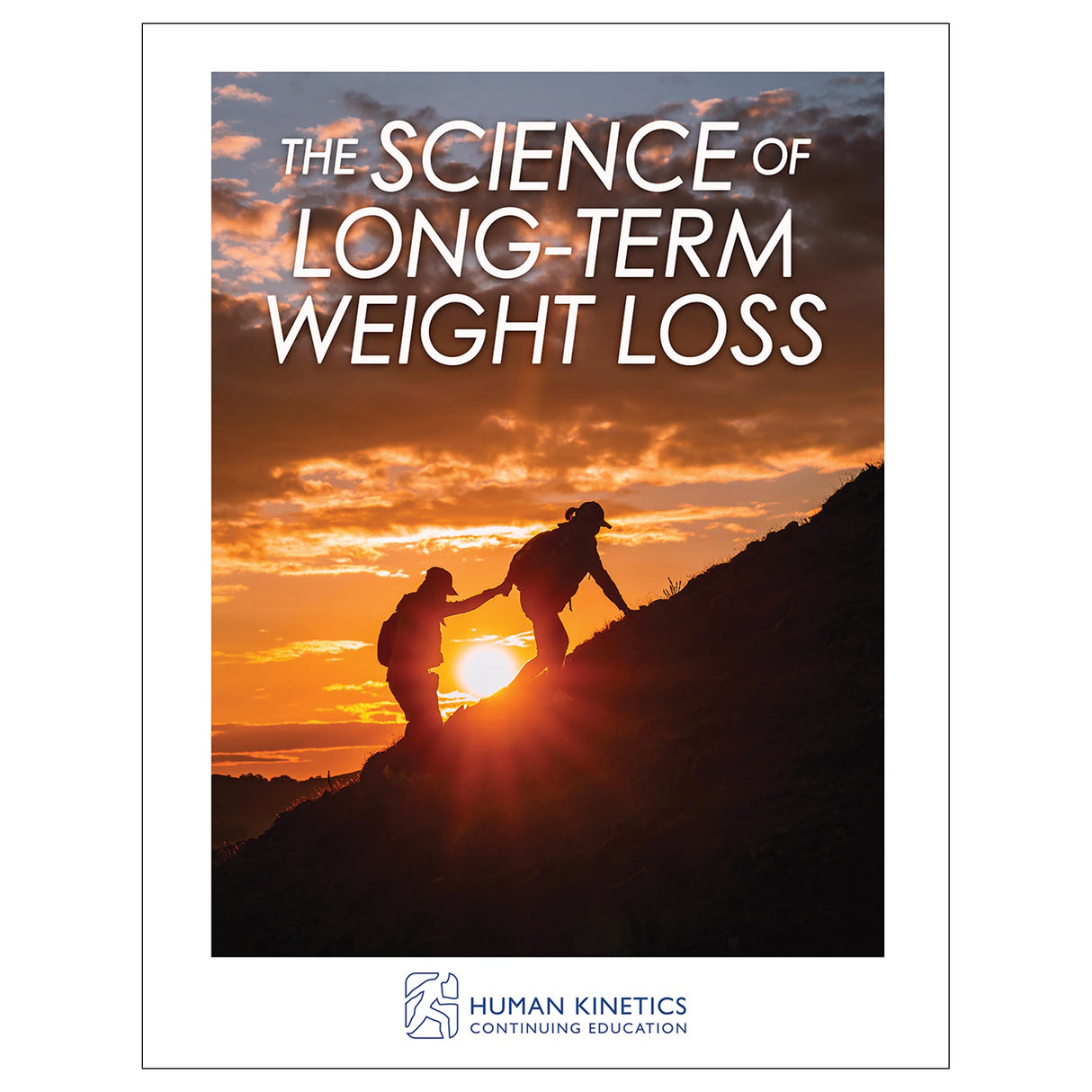The Science of Long-Term Weight Loss Online CE Exam With Ebook
Author: Human Kinetics
$134.00 USD
Human Kinetics strongly recommends that you complete your exam within the calendar year of your date of purchase to ensure approved credits do not expire for your organization.
- The Science of Long-Term Weight Loss ebook
- Online continuing education exam
The Science of Long-Term Weight Loss provides a comprehensive, evidence-based approach to help clients and patients achieve long-term weight loss success. Taking into consideration decades of research from experts in the field, it embraces a multidisciplinary approach and the use of the complexity science approach to better understand the issues surrounding long-term weight loss.
The Science of Long-Term Weight Loss begins by discussing the origins of the obesity epidemic and theoretical strategies to support weight loss. The authors use the complexity science approach to explain the factors that contribute to the prevalence of obesity, such as genetics and public policy, and explores behavioral influences on body composition, such as physical activity and nutritional intake.
Sustainable long-term weight loss solutions and the prevention of weight regain are studied in depth, and societal factors such as the environment and food production are considered. The text covers a broad range of topics, including food addiction, exercise resistance, night eating syndrome, emotional regulation, continuous care, problem-solving, accountability, and group support.
Case studies throughout offer a glimpse into the struggles and successes involved with long-term weight loss.
As a resource for understanding the multifaceted issues surrounding obesity and weight loss, this ebook is invaluable to those studying or encountering obesity, including certified fitness and health professionals working with clients or patients who need long-term strategies for weight management.
Learning Objectives
- Describe the prevalence and etiology of obesity.
- Explain how individual and environmental contributors make obesity treatment and prevention complex and difficult.
- Understand the theories for explaining the obesity epidemic.
- Describe the prevalence of overweight and obesity in children and young people, and list the factors that contribute to childhood obesity.
- Understand energy balance and the predictors of weight loss in weight loss studies.
- Describe the recommendations for using exercise to lose weight and maintain lost weight.
- Distinguish disordered eating behaviors from healthy eating behaviors.
- Understand the effectiveness of weight loss maintenance interventions as well as best practices for weight loss maintenance.
- Explain how societal obesity interventions require a complex system of policy changes, involving government and industry.
- Describe behavioral approaches to obesity treatment, and recognize the need for longer-term interventions in obesity treatment.
- Understand the potential of group work, social support, motivational interviewing, self-determination theory, self-experimentation, and other intervention attributes in successful weight loss and weight loss maintenance.
- Identify the basic components of an effective long-term weight loss program and the skills clients need to develop to be successful so that a comprehensive program can be designed, implemented, and tailored over time.
Audience
Certified fitness professionals and personal trainers who work on weight loss strategies with clients or patients.Chapter 2. Theoretical Approaches to Obesity and Weight Loss
Chapter 3. Obesity: The Interaction of Genetics and the Environment
Chapter 4. Childhood Obesity
Chapter 5. Interventions for Childhood Obesity
Chapter 6. Interventions for Weight Loss in Adults
Chapter 7. Physical Activity and Weight Loss
Chapter 8. Eating Behavior and Disorders of Eating
Chapter 9. Long-Term Weight Loss and the Prevention of Weight Regain
Chapter 10. Environment, Public Policy, and Long-Term Weight Loss
Chapter 11. Alternative Approaches for Long-Term Weight Loss (Part I)
Chapter 12. Alternative Approaches for Long-Term Weight Loss (Part II)
Chapter 13. Developing and Refining Long-Term Weight Loss Plans for Your Clients





